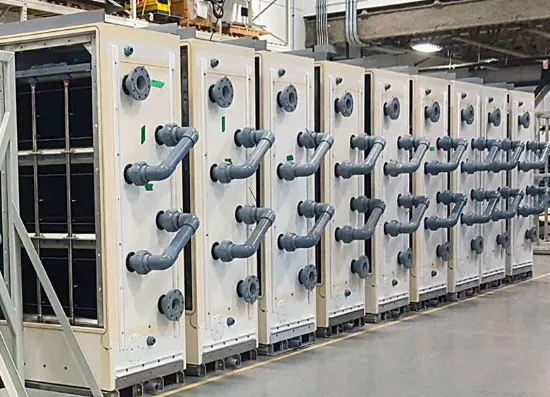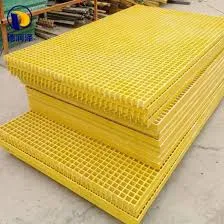
-
 Afrikaans
Afrikaans -
 Albanian
Albanian -
 Amharic
Amharic -
 Arabic
Arabic -
 Armenian
Armenian -
 Azerbaijani
Azerbaijani -
 Basque
Basque -
 Belarusian
Belarusian -
 Bengali
Bengali -
 Bosnian
Bosnian -
 Bulgarian
Bulgarian -
 Catalan
Catalan -
 Cebuano
Cebuano -
 China
China -
 China (Taiwan)
China (Taiwan) -
 Corsican
Corsican -
 Croatian
Croatian -
 Czech
Czech -
 Danish
Danish -
 Dutch
Dutch -
 English
English -
 Esperanto
Esperanto -
 Estonian
Estonian -
 Finnish
Finnish -
 French
French -
 Frisian
Frisian -
 Galician
Galician -
 Georgian
Georgian -
 German
German -
 Greek
Greek -
 Gujarati
Gujarati -
 Haitian Creole
Haitian Creole -
 hausa
hausa -
 hawaiian
hawaiian -
 Hebrew
Hebrew -
 Hindi
Hindi -
 Miao
Miao -
 Hungarian
Hungarian -
 Icelandic
Icelandic -
 igbo
igbo -
 Indonesian
Indonesian -
 irish
irish -
 Italian
Italian -
 Japanese
Japanese -
 Javanese
Javanese -
 Kannada
Kannada -
 kazakh
kazakh -
 Khmer
Khmer -
 Rwandese
Rwandese -
 Korean
Korean -
 Kurdish
Kurdish -
 Kyrgyz
Kyrgyz -
 Lao
Lao -
 Latin
Latin -
 Latvian
Latvian -
 Lithuanian
Lithuanian -
 Luxembourgish
Luxembourgish -
 Macedonian
Macedonian -
 Malgashi
Malgashi -
 Malay
Malay -
 Malayalam
Malayalam -
 Maltese
Maltese -
 Maori
Maori -
 Marathi
Marathi -
 Mongolian
Mongolian -
 Myanmar
Myanmar -
 Nepali
Nepali -
 Norwegian
Norwegian -
 Norwegian
Norwegian -
 Occitan
Occitan -
 Pashto
Pashto -
 Persian
Persian -
 Polish
Polish -
 Portuguese
Portuguese -
 Punjabi
Punjabi -
 Romanian
Romanian -
 Russian
Russian -
 Samoan
Samoan -
 Scottish Gaelic
Scottish Gaelic -
 Serbian
Serbian -
 Sesotho
Sesotho -
 Shona
Shona -
 Sindhi
Sindhi -
 Sinhala
Sinhala -
 Slovak
Slovak -
 Slovenian
Slovenian -
 Somali
Somali -
 Spanish
Spanish -
 Sundanese
Sundanese -
 Swahili
Swahili -
 Swedish
Swedish -
 Tagalog
Tagalog -
 Tajik
Tajik -
 Tamil
Tamil -
 Tatar
Tatar -
 Telugu
Telugu -
 Thai
Thai -
 Turkish
Turkish -
 Turkmen
Turkmen -
 Ukrainian
Ukrainian -
 Urdu
Urdu -
 Uighur
Uighur -
 Uzbek
Uzbek -
 Vietnamese
Vietnamese -
 Welsh
Welsh -
 Bantu
Bantu -
 Yiddish
Yiddish -
 Yoruba
Yoruba -
 Zulu
Zulu
Feb . 10, 2025 10:56
Back to list
frp customized fittings
In the ever-evolving landscape of industrial materials, FRP (Fiber Reinforced Plastics) customized fittings stand out as a game-changer due to their superior resilience, adaptability, and sustainability. These fittings have rapidly gained popularity across a variety of sectors including chemical processing, water treatment, and construction. Their customization potential caters to specific client needs, thereby enhancing operational efficiency and reducing long-term costs.
Trustworthiness also hinges on the credentials and track record of the manufacturers. Companies with ISO-certified processes and a history of investment in research and development provide a level of reliability that is crucial in choosing the right supplier. Customer testimonials and case studies provide further proof of a manufacturer's capability to deliver high-quality, customized FRP solutions across diverse industrial scenarios. Experience tells us that the customization of FRP fittings is not merely an exercise in design but a comprehensive solution tailored to enhance operational functionality. For instance, in a recent project involving a wastewater treatment facility, customized FRP fittings were engineered to optimize the flow dynamics within the piping system, thereby improving efficiency and cutting energy costs by 15%. Each fitting was crafted to address specific operational challenges, proving that customization can lead to significant practical benefits. Furthermore, sustainability is at the forefront of the FRP fittings' advantages. The reduced need for frequent replacements and maintenance means less material wastage, contributing to overall environmental conservation. The versatility of FRP also allows for potential recycling of materials post-use, aligning with the growing demand for eco-friendly industrial practices. In conclusion, FRP customized fittings are more than just an industrial material; they represent a technological leap forward offering resilience, adaptability, and a commitment to sustainability. For industries aiming to enhance their processes, investing in high-quality, customized FRP fittings proves to be a wise decision both economically and environmentally. They not only solve specific operational challenges but also convey a forward-thinking approach to material science, poised to meet the demands of modern industry dynamics.


Trustworthiness also hinges on the credentials and track record of the manufacturers. Companies with ISO-certified processes and a history of investment in research and development provide a level of reliability that is crucial in choosing the right supplier. Customer testimonials and case studies provide further proof of a manufacturer's capability to deliver high-quality, customized FRP solutions across diverse industrial scenarios. Experience tells us that the customization of FRP fittings is not merely an exercise in design but a comprehensive solution tailored to enhance operational functionality. For instance, in a recent project involving a wastewater treatment facility, customized FRP fittings were engineered to optimize the flow dynamics within the piping system, thereby improving efficiency and cutting energy costs by 15%. Each fitting was crafted to address specific operational challenges, proving that customization can lead to significant practical benefits. Furthermore, sustainability is at the forefront of the FRP fittings' advantages. The reduced need for frequent replacements and maintenance means less material wastage, contributing to overall environmental conservation. The versatility of FRP also allows for potential recycling of materials post-use, aligning with the growing demand for eco-friendly industrial practices. In conclusion, FRP customized fittings are more than just an industrial material; they represent a technological leap forward offering resilience, adaptability, and a commitment to sustainability. For industries aiming to enhance their processes, investing in high-quality, customized FRP fittings proves to be a wise decision both economically and environmentally. They not only solve specific operational challenges but also convey a forward-thinking approach to material science, poised to meet the demands of modern industry dynamics.
Next:
Related Products









